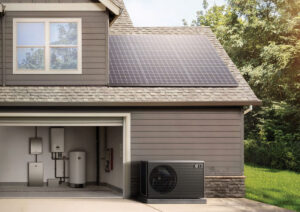Digital technologies and smart devices are facilitating greater information sharing by allowing people (and devices) to more efficiently communicate with each other. Internet-connected devices not only better enable us to stay in touch with loved ones, they simplify and streamline our lives by communicating with each other.
But greater connectivity comes with a cost.
Addressing the persistent and evolving reality of cyber threats is important for individuals and organizations alike. As people become increasingly interconnected and reliant on digital technologies, there are more opportunities for cyber threats that need to be addressed.
To this end, the National Rural Electric Cooperative Association (NRECA) launched RC3, the Rural Cooperative Cybersecurity Capabilities program, to help electric cooperatives build stronger cybersecurity programs. With funding from the U.S. Department of Energy, RC3 is developing tools to help cooperatives develop a culture of cybersecurity.
Electric cooperatives, large and small, are investing time and resources to build stronger cyber defenses and increase their resiliency to cyberattacks. As co-ops ramp up capabilities in the beneficial use of digital technologies, they are integrating best practices to safeguard consumer data and grid operations from cyberattacks.
Electric co-ops are responding to the challenge, but are you? Cybercrime affects everyone––organizations, businesses and even individuals. Taking steps to protect your home network and devices from cyberattacks now will save you time and money in the long run.
Here are a few tips to beef up your personal cybersecurity:
- Make sure you have antivirus software installed on your computer, and remember to keep it updated.
- Don’t send e-mails containing personal information, like your date of birth or Social Security Number, because that increases opportunities for mal-actors to steal your identify. Be careful when entering a credit card number into a website—if you do, make sure that it’s a secure website. You can tell if it’s secure by looking for the “s” at the beginning of the website address. Most begin with “http://.” A secure site will begin with “https://.”
- Attachments or links in an email can contain malware that can infect your computer. Never open an e-mail attachment or click a link unless you know the person sending it, and you were expecting them to send it to you (hackers can take over an account and make it look like it’s from a friend.)
- Monitor children’s online activity, and make sure they know how to practice good cyber security. Visit the U.S. Computer Emergency Readiness Team’s (UC-CERT) website for security tips on how to keep children safe online (https://www.us-cert.gov/ncas/tips/ST05-002).
- Always use a different password for each account. Stick to longer passwords that include a combination of numbers, special characters, with both lowercase and capital letters.
Kaley Lockwood writes on consumer and cooperative affairs for the National Rural Electric Cooperative Association, the national trade association representing more than 900 local electric cooperatives. From growing suburbs to remote farming communities, electric co-ops serve as engines of economic development for 42 million Americans across 56 percent of the nation’s landscape.






